#Luxury Beliefs
Text

#yep yep#communism#luxury beliefs#always easy to praise communism in non communist countries#what sounds good vs reality#Utopianism is mind cancer#release your adolescence#beliefs only wealthy people can afford#dumb da dumb dumb#in the abundance of water the fool is thirsty
256 notes
·
View notes
Text




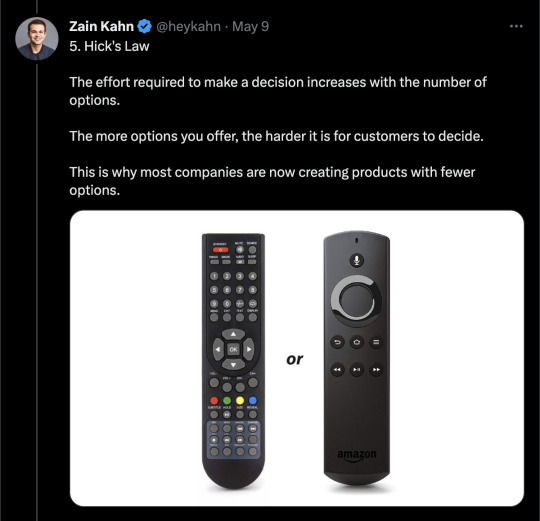

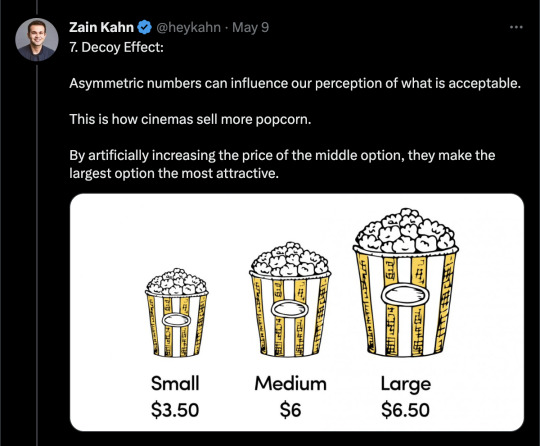
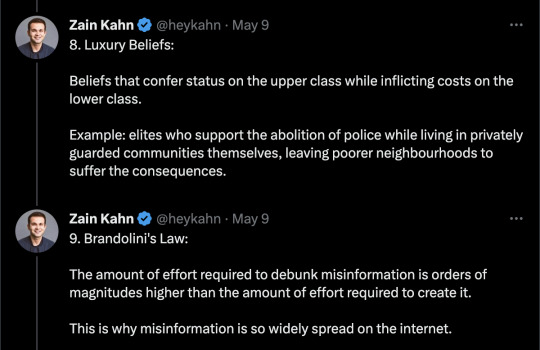
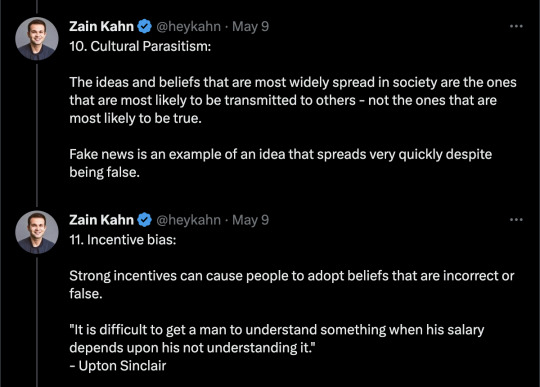


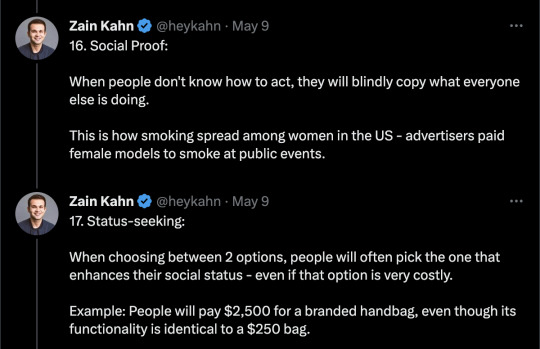


#Zain Kahn#Cunningham's Law#The Lindy Effect#Dunning Kruger Effect#confirmation bias#Hick's Law#The Streisand Effect#Decoy Effect#Luxury beliefs#Brandolini's Law#Cultural parasitism#Incentive bias#Reciprocity bias#Mimetic desire#risk aversion#uncertainty aversion#social proof#status seeking#evolutionary mismatch#Metcalfe's Law#Fredkin's Paradox#human psychology#psychology#cognitive biases#cognitive flaws#religion is a mental illness
129 notes
·
View notes
Text
https://www.thetimes.co.uk/article/how-the-luxury-beliefs-of-an-educated-elite-erode-society-0mx8fd2nl
"a 2020 survey found that the richest Americans showed the strongest support for defunding the police, while the poorest reported the lowest support. Throughout the remainder of that year and into 2021, murder rates throughout the US soared as a result of defunding policies, officers retiring early or quitting, and police departments struggling to recruit new members after the luxury belief class cultivated an environment of loathing toward law enforcement.
Consider that compared with Americans who earn more than $75,000 a year, the poorest Americans are seven times more likely to be victims of robbery, seven times more likely to be victims of aggravated assault and 20 times more likely to be victims of sexual assault. And yet many affluent people are calling to abolish law enforcement."
Rob Henderson's concept of luxury beliefs is very interesting. Like myself, Rob Henderson is a former foster kid who went to college. He wrote a memoir on his experiences and notably has made certain observations on the college elite's "progressive" mindset. Rob exposes how the elite politically correct push backwards beliefs to demonstrate their social status.
As a woman who aged out of foster care, one of the things I was told by my social worker was that foster kids often become homeless when they age out of the system and that the girls become prostitutes. It was a great fear of mine that I would become homeless and that my fate would be to be a prostitute because there was simply no other forms of support. When I encountered liberal feminists who claimed that "sex work is work" it was shocking. You would think that feminists would try to be allies to girls from foster care and that they would be concerned by the high rates of sex trafficking and sexual exploitation that they encounter. But these "activists" do not care about foster kids. They push a harmful lifestyle because it's a luxury belief. They live privileged lives and can do Only Fans from their bedrooms meanwhile girls that age out of foster care often end up homeless.
The more that I look into social justice warriors, the more I realize that they really have antagonistic attitudes towards less fortunate people - especially girls from foster care.
#Rob Henderson#Foster care#Former foster youth#Luxury Beliefs#Anti woke#Anti sjw#Elite college kids#Yale students#Woke college kids
8 notes
·
View notes
Text
“These findings were later echoed by the renowned French sociologist Pierre Bourdieu in his 1979 book Distinction: A Social Critique of the Judgment of Taste.
In his body of work, Bourdieu described how “distance from necessity” characterized the affluent classes. In fact, Bourdieu coined the term “cultural capital.”
Once our basic physical and material needs are met, people can then spend more time cultivating what Bourdieu called the “dispositions of mind and body” in the form of intricate and expensive tastes and habits that the upper classes use to obtain distinction.
Corresponding with these sociological observations, the biologist Amotz Zahavi proposed that animals evolve certain displays, traits, and behaviors because they are so physically costly.
(…)
So for humans, top hats and designer handbags are costly signals of economic capacities; for gazelles, stotting is a costly signal of physical capacities.
Veblen, Bourdieu and Zahavi all claimed that humans—or animals—flaunt certain symbols, communicate in specific ways, and adopt costly means of expressing themselves, in order to obtain distinction from the masses.
Animals do this physically.
And affluent humans often do it economically and culturally, with their status symbols.
A difference, though, is that human signals often trickle to the rest of society, which weakens the power of the signal. Once a signal is adopted by the masses, the affluent abandon it.
(…)
The yearning for distinction is the key motive here.
And in order to convert economic capital into cultural capital, it must be publicly visible.
But distinction encompasses not only clothing or food or rituals. It also extends to ideas and beliefs and causes.
In his book WASPS: The Splendors and Miseries of an American Aristocracy, the author Michael Knox Beran examined the lives and habits of upper-class Americans from the mid-nineteenth to the mid-twentieth century.
He writes that “WASPS” had mixed feelings about their fellow citizens.
These upper-crust Americans viewed ordinary Americans as “sunk in moronic darkness” and that “It is a question whether a high WASP ever supported a fashionable cause without some secret knowledge that the cause was abhorred by the vulgarians.”
This still goes on today.
In the past, people displayed their membership in the upper class with their material accoutrements.
But today, because material goods have become a noisier signal of one’s social position and economic resources, the affluent have decoupled social status from goods, and re-attached it to beliefs.
The upper class craves distinction.
(…)
A 2020 study titled “The possession of high status strengthens the status motive” led by Cameron Anderson at UC Berkeley found that relative to lower-class individuals, upper-class individuals have a greater desire for wealth and status.
In other words, high-status people desire wealth and status more than anyone else.
(…)
Expressing a luxury belief is a manifestation of cultural capital, a signal of one’s fortunate economic circumstances.
There are other examples of luxury beliefs as well, such as the downplaying of individual agency in shaping life outcomes.
A 2019 study led by Joseph Daniels at Marquette University was published in the journal of Applied Economics Letters.
They found that individuals with higher income or a higher social status were the most likely to say that success results from luck and connections rather than hard work, while low-income individuals were more likely to say success comes from hard work and individual effort.
Well, which belief is more likely to be true?
Plenty of research indicates that compared with an external locus of control, an internal locus of control is associated with better academic, economic, health, and relationship outcomes. Believing you are responsible for your life’s direction rather than external forces appears to be beneficial.
Here’s the late Stanford psychology professor Albert Bandura. His vast body of research showed that belief in personal agency, or what he described as “self-efficacy,” has powerful positive effects on life outcomes.
Undermining self-efficacy will have little effect on the rich and educated, but will have pronounced effects for the less fortunate.
It’s also generally instructive to see what affluent people tell their kids. And what seems to happen is that affluent people often broadcast how they owe their success to luck. But then they tell their own children about the importance of hard work and individual effort.
(…)
When I was growing up in foster homes, or making minimum wage as a dishwasher, or serving in the military, I never heard words like “cultural appropriation” or “gendered” or “heteronormative.”
Working class people could not tell you what these terms mean. But if you visit an elite university, you’ll find plenty of affluent people who will eagerly explain them to you.
When people express unusual beliefs that are at odds with conventional opinion, like defunding the police or downplaying hard work, or using peculiar vocabulary, often what they are really saying is, “I was educated at a top university” or “I have the means and time to acquire these esoteric ideas.”
Only the affluent can learn these things because ordinary people have real problems to worry about.
To this extent, Pierre Bourdieu in The Forms of Capital wrote, “The best measure of cultural capital is undoubtedly the amount of time devoted to acquiring it.”
The chief purpose of luxury beliefs is to indicate evidence of the believer’s social class and education.
Members of the luxury belief class promote these ideas because it advances their social standing and because they know that the adoption of these policies or beliefs will cost them less than others.
(…)
Why are affluent people more susceptible to luxury beliefs? They can afford it. And they care the most about status.
In short, luxury beliefs are the new status symbols.
They are honest indicators of one’s social position, one’s level of wealth, where one was educated, and how much leisure time they have to adopt these fashionable beliefs.
And just as many luxury goods often start with the rich but eventually become available to everyone, so it is with luxury beliefs.
But unlike luxury goods, luxury beliefs can have long term detrimental effects for the poor and working class. However costly these beliefs are for the rich, they often inflict even greater costs on everyone else.”
#henderson#rob henderson#luxury beliefs#luxury#psychology#bourdieu#pierre bourdieu#veblen#thorstein veblen#zahavi#amotz zahavi#beran#michael knox beran#class#status#status symbols#peacock
2 notes
·
View notes
Text
A 2019 study at Marquette University found that ‘individuals who have a higher income or a higher social status were the most likely to say that success results from luck rather than hard work’ and that ‘individuals with lower income were more likely to say success comes from hard work’. But as Rob Henderson stated, ‘believing you are responsible for your life’s direction rather than external forces appears to be beneficial’. This is the perfect example of a luxury belief: the rich and educated will spread the idea that success comes from luck and thereby undermine self-efficacy luring the lower classes to believe that; while they’ll keep the secret to themselves and their children: success is a matter of hard work.
(you can follow me on twitter now too: @deadlywaltz )
3 notes
·
View notes
Text
#new york times#David Brooks#progressives#opression Olympics#virtue signaling#moral preening#luxury beliefs#elite universities#elite colleges
0 notes
Text



Source
#ritchie torres#luxury belief#antiwar protests#black colleges#antizionism#ivy league#community college#single mother of color
18 notes
·
View notes
Text
hickeygibson mercy (?) kill vs fitzier homoerotic assisted suicide parallel. sure we've all seen it. undeniable. but what about dundy agitating for leaving the sick when his boybestfriend jfj is still very much one of the people that would be left behind
#don't indulge your morals over your practicals / [he] no longer shares his belief they have the luxury of moral thinking. if you even care#if my thoughts were maybe 5% more coherent i would write this fic btw (threat)#the terror
10 notes
·
View notes
Text
Chapuys, while making Rochford protest his innocence of the charges against him, is evidently anxious to make him recant his Lutheranism, which the other versions of the speech do not represent him as doing. Constantine, who professes to have been present at the execution, gives an account very similar to Wriothesley's; and, as the two writers were poles asunder in their religious opinions, we may do best by accepting their versions. If so, the brilliant young courtier, poet and diplomatist, made an edifying end, but with his religious sympathies unchanged.
The Life of Anne Boleyn, Philip W. Sergeant
#nor de carles . so...three.#george boleyn#unsurprisingly LM just...doesn't mention this in her chapuys biography.#like not him reporting it nor the sources which don't corroborate it#considering its thesis is a defense of chapuys' veracity as a contemporary source you'd think more of the book would be doing that#comparing his reports of events to other contemporary reports of the same events/speeches#but like. had that been done that would be difficult to argue. so...#going to say also his 'lutheranism' bcus we know he was an evangelical but not a lutheran#he does seem to have been more 'radical' than anne in some respects wrt religion but not that far necessarily#tl; dr the gist is correct he did not denounce his religious beliefs on the scaffold. he just said he should have adhered to them#more assiduously and over and above the transient luxuries of court life
3 notes
·
View notes
Text
its just....the way my brain is, if i dont see a point in something i do Not want 2 bother with it. but the issue is that working constantly has no ultimate point. im not working for a goal, im working to get food to allow this body's survival . whats the point in that. i want 2 create i want 2 have time 2 sit and draw stupid mspaint furries. i want 2 get home st 1am and not have 2 lament abt going 2 bed early cuz i need 2 get up early for the job i JUST finished . we all know how fucked up this is, and anyone who doesnt admit it is always clearly in denial . The empire is going to fall, & america has a reckoning, but its so depersonalizing 2 be a US citizin right now....
#Making it so so clear that as a USamerican i live in the lap of luxury at the cost of many people#My tax dollars directly contribute 2 worldwide genocides...coups#Almost every destabilization of any nation#And its so fucked up to know and be aware of how vile and evil this entire country is#& be a citizen of it & still just . like#Call it lazy or lack of willpower and if u rly feel that way lack of care but like#im so fucking exhausted frm working every daylight hour just 2 afford a basic cart of groceries#and 2 see whats happening & feel so immobilized by the need 2 work 2 sustain yrself & survive like#its just so hollowing.#ive tried 2 get coworkers & groups together 2 even just#sit on the steps of a manufacturer w signs and that cldnt even be arranged bc everyone is so fucking exhausted#we have 2 days of the week 2 not be grinding so its all spent recovering & leaves no room for pssion#& i know this is Exactly what They (they as is the hierarchal billionaire tyrants lobbying 4 corps) want#the guys in power need us exhausted & beaten down#its ez 2 push anything when yr life & soul is dedicated 2 profit 4 survival#What else do u have 2 care abt . just let it happen vote whatever doesnt kill u even tho u know its all fake#We all know it is . we all know our vote & our beliefs dont rly matter 2 the people who want the status quo forever#So what do we do but sit and cry and whine & make posts like this .
2 notes
·
View notes
Text
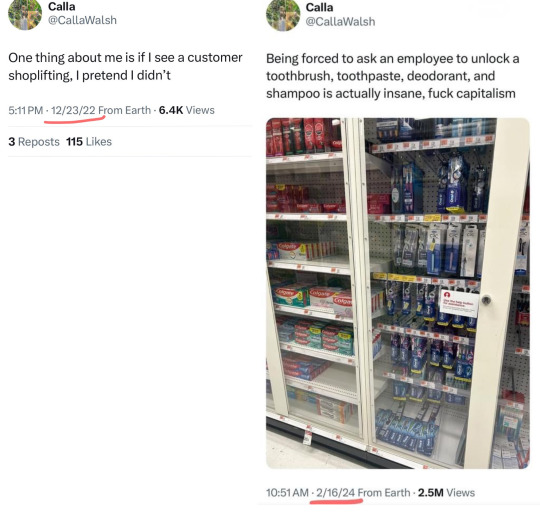
“𝐓𝐡𝐞𝐫𝐞'𝐬 𝐚𝐧 𝐞𝐩𝐢𝐝𝐞𝐦𝐢𝐜 𝐨𝐟 𝐩𝐞𝐨𝐩𝐥𝐞 𝐮𝐬𝐢𝐧𝐠 𝐭𝐡𝐞 𝐰𝐨𝐫𝐝 𝐜𝐚𝐩𝐢𝐭𝐚𝐥𝐢𝐬𝐦 𝐚𝐬 𝐚 𝐜𝐚𝐭𝐜𝐡-𝐚𝐥𝐥 𝐟𝐨𝐫 "𝐚𝐧𝐲𝐭𝐡𝐢𝐧𝐠 𝐈 𝐝𝐢𝐬𝐥𝐢𝐤𝐞 𝐢𝐧 𝐬𝐨𝐜𝐢𝐞𝐭𝐲."
𝐌𝐚𝐧𝐲 𝐨𝐟 𝐭𝐡𝐞𝐬𝐞 𝐩𝐞𝐨𝐩𝐥𝐞'𝐬 𝐥𝐢𝐯𝐞𝐬 𝐰𝐨𝐮𝐥𝐝 𝐢𝐦𝐩𝐫𝐨𝐯𝐞 𝐢𝐟 𝐭𝐡𝐞𝐲 𝐬𝐭𝐨𝐩𝐩𝐞𝐝 𝐫𝐞𝐥𝐲𝐢𝐧𝐠 𝐨𝐧 "𝐜𝐚𝐩𝐢𝐭𝐚𝐥𝐢𝐬𝐦" 𝐚𝐬 𝐚 𝐬𝐜𝐚𝐩𝐞𝐠𝐨𝐚𝐭 𝐭𝐨 𝐚𝐯𝐨𝐢𝐝 𝐮𝐧𝐝𝐞𝐫𝐬𝐭𝐚𝐧𝐝𝐢𝐧𝐠 𝐰𝐡𝐚𝐭 𝐭𝐡𝐞𝐲'𝐫𝐞 𝐚𝐜𝐭𝐮𝐚𝐥𝐥𝐲 𝐮𝐩𝐬𝐞𝐭 𝐚𝐛𝐨𝐮𝐭.”
— 𝐒𝐚𝐥𝐨𝐦é 𝐒𝐢𝐛𝐨𝐧𝐞𝐱
#shot -> chaser#luxury beliefs#ideologyspeak vs reality#in the abundance of water the fool is thirsty#cutting the branch you’re sitting and pontificating on#cause and effect#fucked up behavior vs isms#projectionism#money talks bullshit walks#release mental adolescence#capitalism#salomesibonex
30 notes
·
View notes
Text





==
Hissing "colonizers" when you don't know the first thing about history or geography is exactly the kind of first world luxury belief you get when you take Postcolonial Studies or Gender Studies instead of, well, history or geography, or anything based on facts instead of ideology.
The absolute state of US history and geography education.
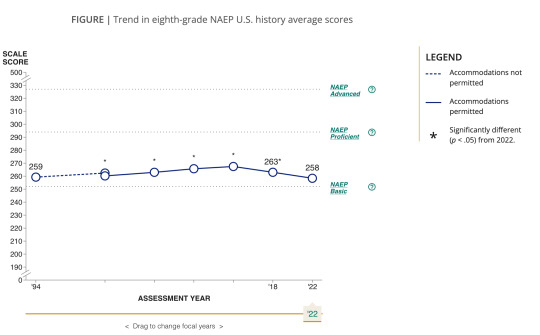
[ Source: Nation's Report Card ]
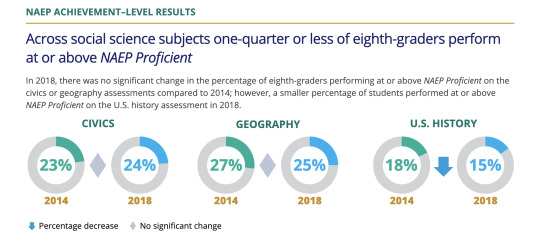
[ Source: Nation's Report Card ]
And this just for US geography and history, never mind the much larger field of international geography and history.
#faith based beliefs#stupid people#Palestine#Israel#Gaza#Gaza Strip#first world ignorance#luxury beliefs#indoctrination#colonization#colonialism#postcolonial theory#postcolonial studies#gender studies#palestinian state#religion is a mental illness
17 notes
·
View notes
Text

#Sex industry#feminism#foster kids#foster care#liberal feminism#sex trafficking#social work#aging out#ptsd#trauma#luxury beliefs#radfems do touch#Radfem#stop the foster care to sex trafficking pipeline
3 notes
·
View notes
Text

#lifestyle#vegetables#life#love#reblog#aesthetic#junicafebaby#foodie#food#cafe#outdoor restaurant#luxury#healthy food#health & fitness#self healing#health#hope#gratitude#forgiveness#belief#authenticity
6 notes
·
View notes
Text





✨💅🏿
#black women#brown skin#darkskinblackbeauty#black girl luxury#moodboard#aesthetic#divine femininity#beauty#fashion#femininity#soft life#dark skin#black models#visionboard#collage#life quotes#quotes#affirmations#positive mindset#belief
25 notes
·
View notes
Text
thinking again about when david cameron came to our neighbourhood and was confused about muslim parents sending their children to a jewish primary school and natalie said "we are not tom and jerry". a lot of yous think life is tom and jerry.
#everything i think about cameron is informed by this#i understand the tory party through the lens that they understand rich people's choices naturally#but not the decisions of people who are not like them#all this luxury beliefs shit is that#buying a house in a different cachment area or paying school fees is just natural#valuing a different religious perspective is incomprehensible
5 notes
·
View notes